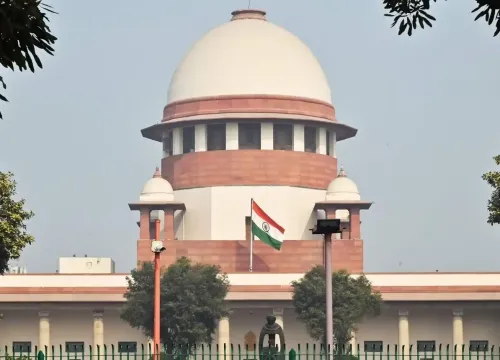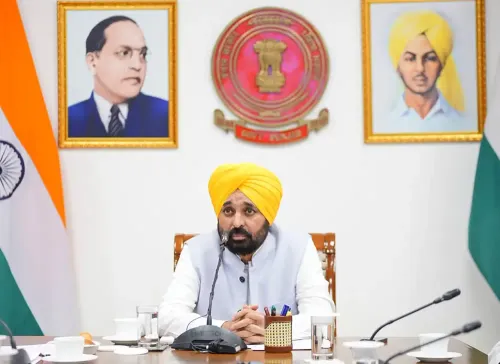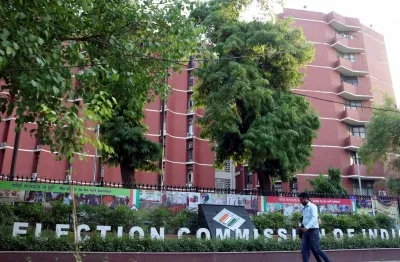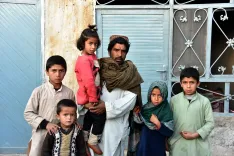Why Did a Notorious Woman Maoist in Jharkhand Surrender?
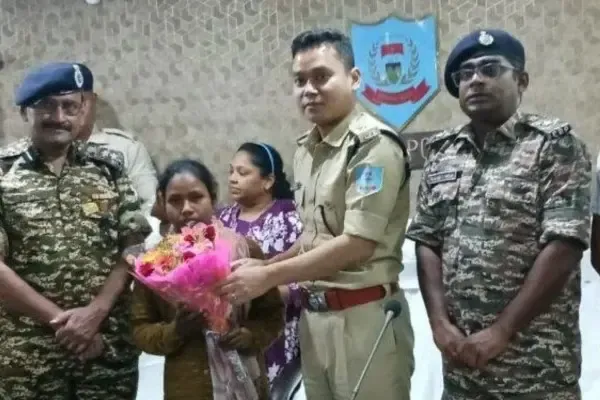
Synopsis
Key Takeaways
- Sunita Murmu has surrendered to police, marking a significant anti-Maoist success.
- She was previously incarcerated for three years on Maoist-related charges.
- Her surrender is a part of the 'Nayi Dishayein' initiative aimed at rehabilitation.
- Two members of the PLFI were arrested in a separate police operation.
- Union Home Minister Amit Shah is pushing for the eradication of Maoism by 2026.
Bokaro, April 28 (NationPress) Sunita Murmu, also known as Lilmuni Murmu, a prominent Maoist who had been on the run, has surrendered to the Bokaro district police on Monday, according to officials. Her surrender was processed at the Superintendent of Police's office under the Jharkhand government's 'Nayi Dishayein' (New Directions) surrender and rehabilitation initiative.
Sunita, aged 22, originates from Amarpani village, located under the Shikaripara police station in Dumka district.
Previously, she spent three years in Giridih jail due to charges involving Maoist activities before being released on bail.
Multiple serious charges have been filed against her at the Mahuatand and Khukhara police stations in Bokaro, including violations under the Arms Act, the Explosives Act, and the Unlawful Activities (Prevention) Act (UAPA).
She had fled during a confrontation between security forces and Maoists in the Lalpania area of Bokaro on April 21, where eight Maoists, including Prayag Manjhi, who had a bounty of Rs 1 crore, were killed. Manjhi was a significant Maoist figure wanted for over 100 incidents across Jharkhand, Bihar, Chhattisgarh, and Odisha.
After her surrender, Sunita told the media that she was forcibly taken from her home by Maoists under the guise of attending court.
Realizing the deception, she attempted to escape. Following the April 21 encounter, she traversed through forests before ultimately reaching Bokaro by train to surrender.
Officials have termed her surrender as a substantial victory in the ongoing anti-Naxal operations.
In a separate incident, police in Khunti district apprehended two members of the banned People's Liberation Front of India (PLFI) on Monday.
Acting on intelligence, police arrested Somlal Mahali (26) from Rugadi village and Saad Munda (25) from Marangburu Sarekocha village. Both were taken into custody by the Sayko police station teams.
Authorities confiscated illegal firearms, live ammunition, PLFI pamphlets, and mobile devices from them.
Union Home Minister Amit Shah has urged all Maoists to surrender their weapons and reintegrate into society, setting a goal to eliminate the Maoist threat from the country by March 31, 2026.



